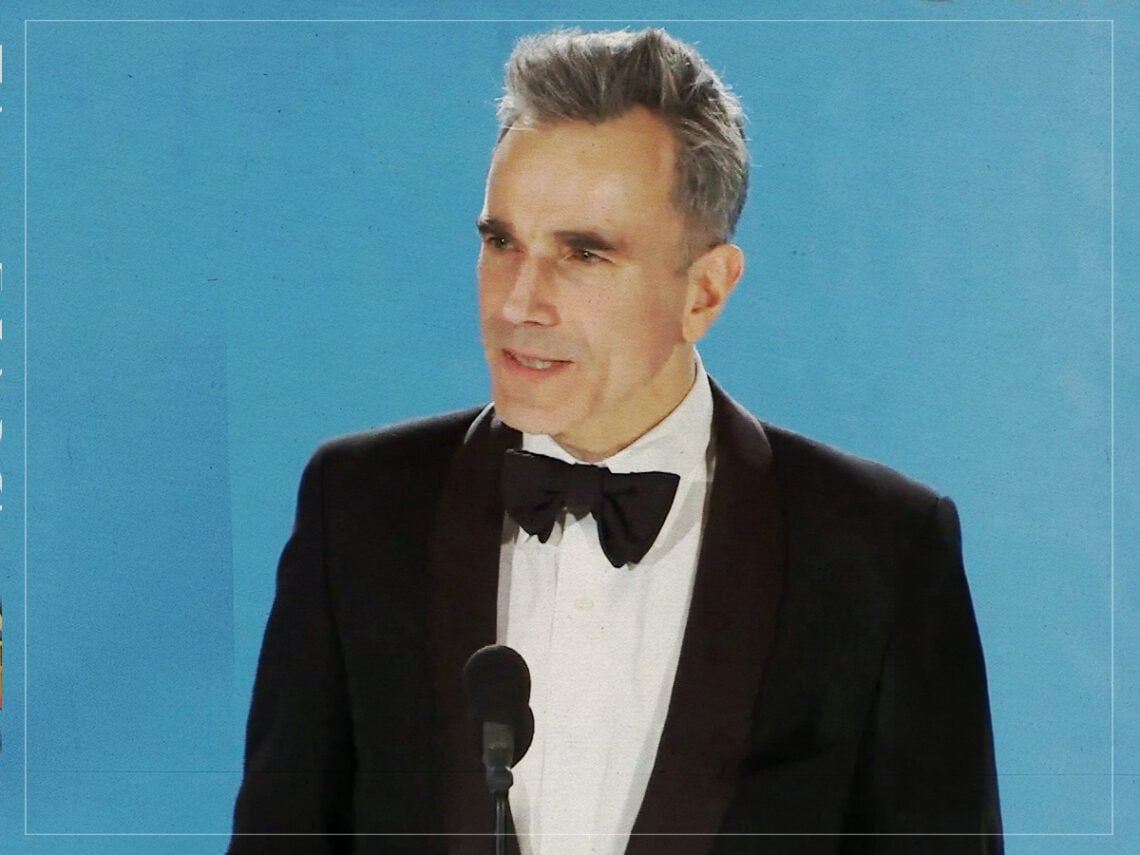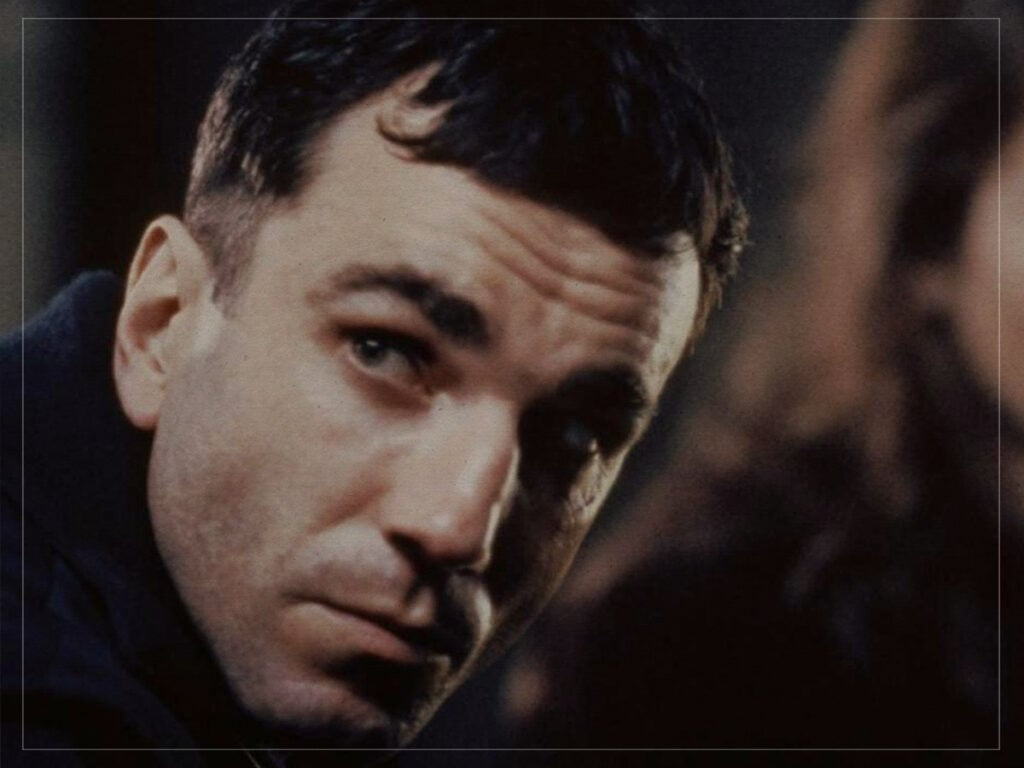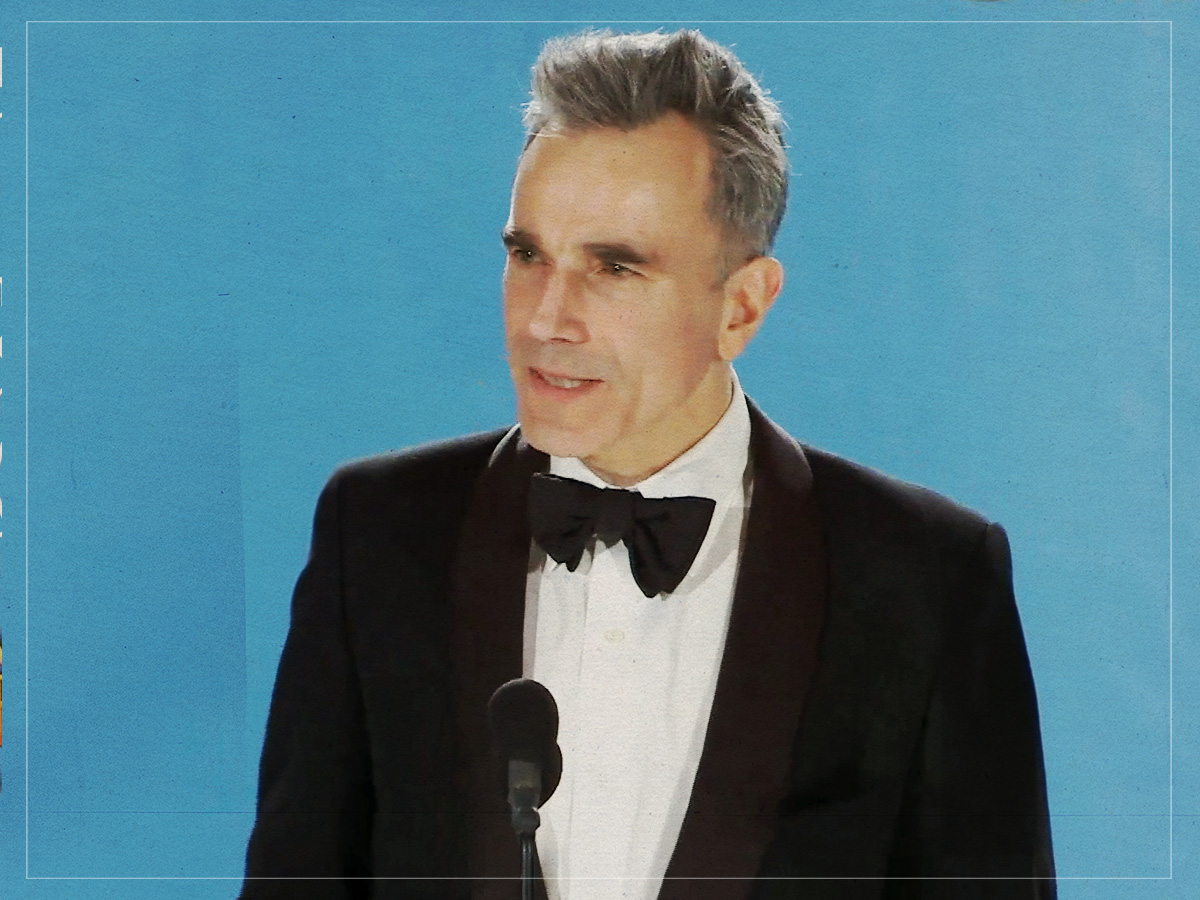
(Credits: Far Out / YouTube Still)
Tue 30 September 2025 16:45, UK
Few acting careers carry the same gravitas and mythos as that of three-time Oscar winner (maintaining the record for the most wins in the ‘Best Lead Actor’ category) Daniel Day-Lewis.
Beginning in the 1980s with a string of forgotten film and television roles and some more recognised Shakespearean efforts on the stage, the saga of Day-Lewis’s journey to becoming one of the greatest actors of our time remains something of a mystery, as he is known to give relatively few interviews.
The most widely known bit of trivia about Day-Lewis is his intense method-acting tendencies, resulting in the rule on the Lincoln set that everyone, including Steven Spielberg, had to address Day-Lewis as “Mr Lincoln” or “Mr President”.
Day-Lewis’s breakout film role came with 1985’s My Beautiful Laundrette, and he would become famous in the on-screen historical epic space, starring in Michael Mann’s The Last of the Mohicans and Martin Scorsese’s Gangs of New York. A true turning point for Day-Lewis then happened in the early 2000s, when the actor had his first collaboration with Paul Thomas Anderson took the form of ‘Best Picture’ winner There Will Be Blood, the neo-western tale of wealth and ambition through which Day-Lewis won his second Oscar.
The role of Abraham Lincoln was one primed for Day-Lewis to inspire absolute awe in viewers, with the American president being remembered as both a life-changing speaker and a kindly man. Following Lincoln’s sweep at the Oscars in 2013, the star reunited with PTA for 2017’s Phantom Thread and secured one more nomination. Then, Day-Lewis entered a presumed retirement, which brings us to his legendary status of today.
 A young Daniel Day-Lewis in the 1997 film The Boxer. (Credits: Far Out / MUBI)
A young Daniel Day-Lewis in the 1997 film The Boxer. (Credits: Far Out / MUBI)
What exactly makes a storied career like this? Day-Lewis trained at the Bristol Old Vic Theatre School, though he essentially abandoned the “traditional” acting taught there to become known as the zealous ideal of a method actor. However, in a rare interview with Chris Sullivan for a 2021 issue of The Chap (Issue 108), Day-Lewis also shared some insight into how it all began for him.
Identifying with many a young auteur, Day-Lewis said, “Once I discovered great film, I was voracious. I just devoured all I could get my hands on.”
Of the performances that inspired his acting career, Day-Lewis continued, “I looked up in awe at Michel Simon in L’Atalante; Jean-Louis Barrault in Les Enfants Du Paradis and Jean Gabin in Le Quai Des Brumes. But there were the British actors who influenced me as well: Richard Harris in This Sporting Life; Albert Finney in Saturday Night and Sunday Morning; Tom Courtenay in The Loneliness of the Long Distance Runner, David Bradley in Kes.”
This selection of films is probably not so familiar to the young generation today (meaning I had to look them up), and they were collectively more successful at the Baftas than the Oscars, a couple winning no major awards at all. Suffice it to say, Day-Lewis’s career probably didn’t start with a list of the best movies of all time; he exhibits an in-depth knowledge of film history, and the performances that motivated him the most likely did so for a unique reason.
Day-Lewis just came out of retirement to star in this year’s Anemone, the family drama directed by his son Ronan Day-Lewis, and, even if the movie isn’t a shoo-in for ‘Best Picture’, the industry is quietly losing its mind over the The Boxer actor’s return to the big screen. Who knows what is next for him after this?
Even if, 50 years from now, his works are considered hidden gems lost to time rather than cultural pillars, another young star who will change the industry will see Day-Lewis and be galvanised by his mastery of the craft in the same way.
Related Topics

